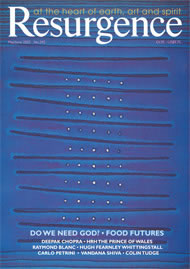BEFORE THE AGE of reason, before humanity invented science, before the theories of gravity, relativity and evolution – and long before the idea of explaining existence in terms of measurement – prophets, poets and philosophers around the world were searching for a word, a principle, a concept, a truth, a theory that would embody all words, all concepts, all phenomena, all truths and all realities. They were looking for a word that would encapsulate the visible and the invisible, the tangible and the intangible, the physical and the non-physical, the material and the non-material. They were seeking a word that was universal, powerful and all-encompassing.
After a long search, a word was found, and it was God. Some called it Allah, others called it Brahma. Some called it Dao, others called it Mystery, or even Dreamtime. In essence, all meant the same thing. They had discovered a word for the ineffable and it gave them a way of making sense of the world.
Everyone rejoiced. They danced the dance of Shiva, they sang hymns to God. They praised the Sun God, the Rain God, the Creator God, the Destroyer God, the Sustainer God, the Personal God, the Impersonal God, the Immanent God, the Transcendent God, the one God, and the God of many Gods. They also sang the praises of the Earth Goddess and the Goddess of Wealth and Wisdom, the Goddess of the Moon, of Music, of Birth and of Death. For some, God was a man with a long white beard, in the sky, pulling strings and running the world. For others, God was not a person, but an all-sustaining principle. They saw no difference between the universe and God. No dualism between matter and spirit. No separation between God and the world.
Whatever their belief, all of them built temples, shrines, sanctuaries, mosques and cathedrals in praise of Gods and Goddesses. They made pictures, frescoes, tapestries and sculptures. They wrote songs, poems
and stories. They celebrated the known God and the unknown God through culture,
creativity, imagination, rituals and festivals.
The idea of God became a source of joy and enchantment, but also of dogma, delusion
and quarrels. Fights broke out between my God and your God, true God and false God, one God and many Gods. Seeing such wars and strife, many thoughtful and rational people came to the conclusion that in order to have peace and harmony they had to get rid of the idea of God itself, and find some other way of explaining the realities of existence.
Thus the age of reason and science began. In this worldview there was no room for Magic or Mystery, no room for Myths or Mysticism. The baby was thrown out with the bathwater. What could not be measured, quantified, analysed or replicated did not exist. Thus the world became divided into believers and non-believers.
That polarisation continues. Richard Dawkins’ new book, The God Delusion, is the latest articulation of a world without God. For Dawkins, God is an unnecessary burden on human intelligence. But for Deepak Chopra, also a scientist, God is a quality of consciousness. We are delighted to publish Chopra’s challenge to Dawkins’ delusions.
Whether God exists or not, the important question is: “Do we need God?” The answer is yes, we do, for, if nothing else, the idea of God keeps human arrogance in check. Those who seek to discard God wish to become God themselves.
There is a power struggle going on between humankind and God. Dawkins’ theory seeks to make humankind the most superior, advanced and privileged species upon the Earth. According to this theory, nothing else should have any supremacy over humans and if we do not have God, then humans can be God and do whatever they like.
Godless science, secular sociology and politics and profane technology have given us global warming, nuclear weapons, a population explosion and umpteen other environmental, psychological and geopolitical problems. We got rid of God and the world was not a better place. God, in the hands of religions, brought many problems; but a Godless world of scientific rationalism has brought many more.
Is there another way? A way beyond a revengeful and judgemental God in heaven or of scientists and economists acting like God on Earth? A way beyond sectarian dogmatism or scientific rationalism? A way beyond authoritarian religions or the market economy? We are still looking, and Chopra has some great insights to guide us in that search.
SATISH KUMAR







